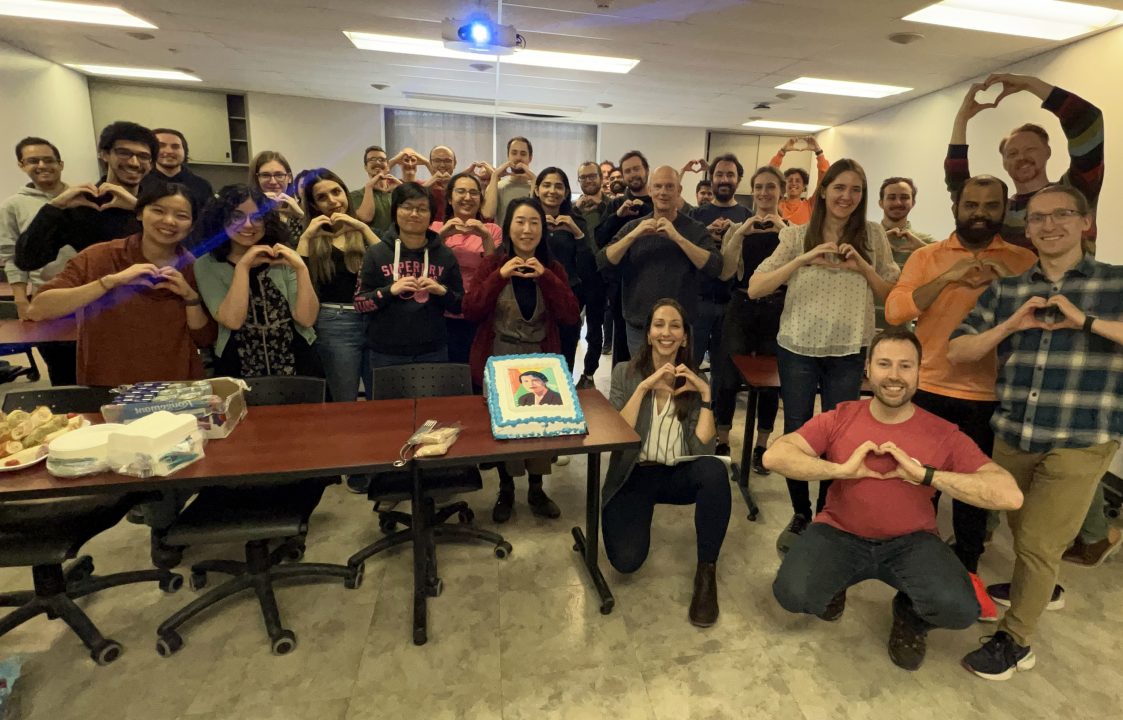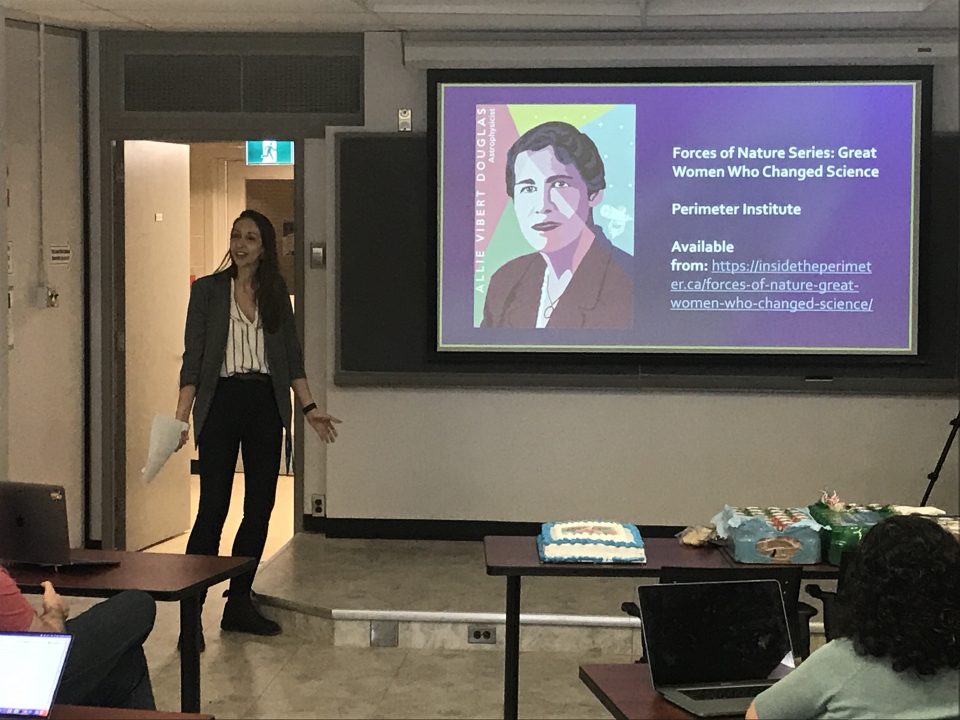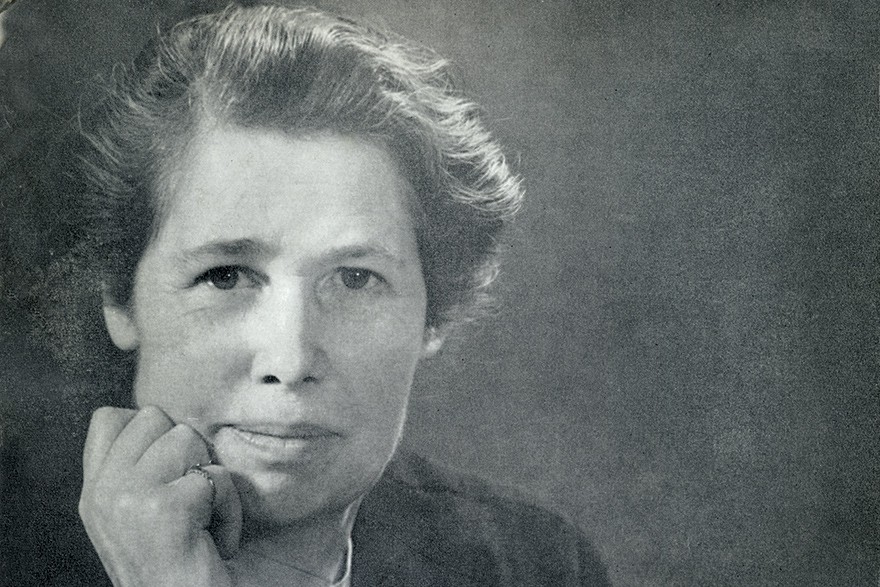News & Events
March 8, 2024
International Women’s Day!


On March 8th, the astroparticle physics group at Queen’s University celebrated International Women’s Day with a lunch a cake of Dr. Alice Vibert Douglas (1894-1988). The group regularly convenes to share science updates over lunch. Dr. Nahee Park provided an update on the Laboratory for Extreme Multi-Messenger Astrophysics (LEMMA) and the HELIX experiment which she and other Queen’s researchers are involved in. Jonathan Corbet, McDonald Institute Engineer Designer, offered an update on Stirling Hall’s He Liquifier Recovery System.

McDonald Institute Manager for EDII Capacity development, Dr. Alex Pedersen gave a short presentation on Women Astroparticle Physicists at Queen’s and focused on Dr. Douglas valuable contributions to physics and astronomy in Canada and internationally, as well as her dedication to supporting women in engineering, science, and medicine. Dr. Douglas is featured as a Forces of Nature: Great Women Who Changed Science (Perimeter Institute), and is also noted in several historic archives at Queen’s University, including the university’s encyclopedia.

Alex shared a reading of Dr. Douglas’ obituary, written by Dr. Peter M. Millman, published in The Royal Astronomical Society of Canada (vol. 82, No. 6, 1988). A remarkable trailblazer of her time, the obituary reads as a celebration of Dr. Douglas’ impact on her science and the role of women in STEM.
As a short-list of her accomplishments (of which there are many), Dr. Douglas was among the first women to receive a PhD in astroparticle physics from McGill in 1925. She held the position of Dean of Women at Queen’s for 20 years and a Professor of Astronomy for 18 years in the Department of Physics, Engineering Physics, and Astronomy. She was the first Canadian President of the International Federation of University Women, the first woman President of the Royal Astronomical Society, and an international advocate for women’s place in international resolutions, including for UNESCO. Looking back at her achievements, it’s not hard to see the impact Dr. Douglas had in her field and how present women and gender minorities in physics are part of her legacy.
